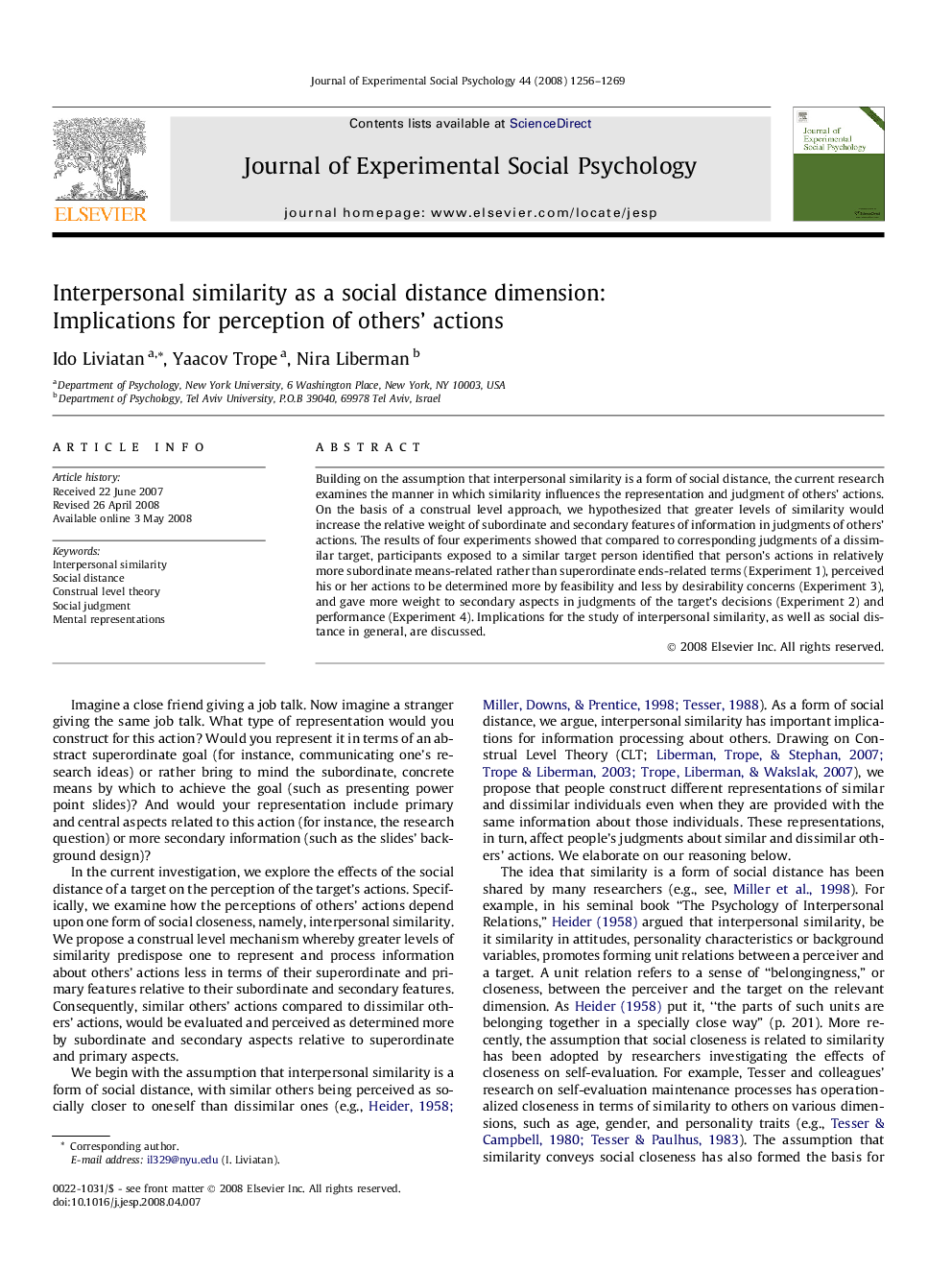| Article ID | Journal | Published Year | Pages | File Type |
|---|---|---|---|---|
| 947943 | Journal of Experimental Social Psychology | 2008 | 14 Pages |
Building on the assumption that interpersonal similarity is a form of social distance, the current research examines the manner in which similarity influences the representation and judgment of others’ actions. On the basis of a construal level approach, we hypothesized that greater levels of similarity would increase the relative weight of subordinate and secondary features of information in judgments of others’ actions. The results of four experiments showed that compared to corresponding judgments of a dissimilar target, participants exposed to a similar target person identified that person’s actions in relatively more subordinate means-related rather than superordinate ends-related terms (Experiment 1), perceived his or her actions to be determined more by feasibility and less by desirability concerns (Experiment 3), and gave more weight to secondary aspects in judgments of the target’s decisions (Experiment 2) and performance (Experiment 4). Implications for the study of interpersonal similarity, as well as social distance in general, are discussed.
